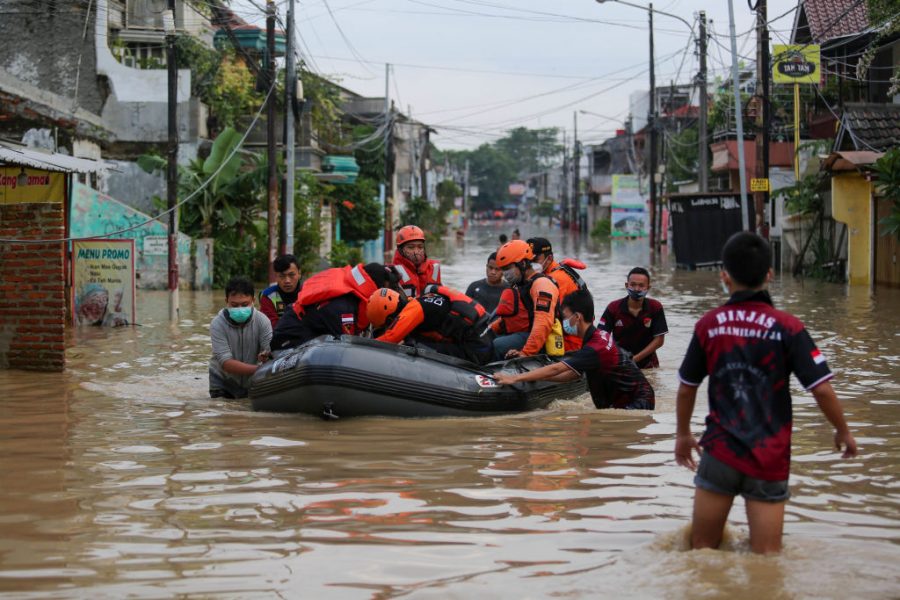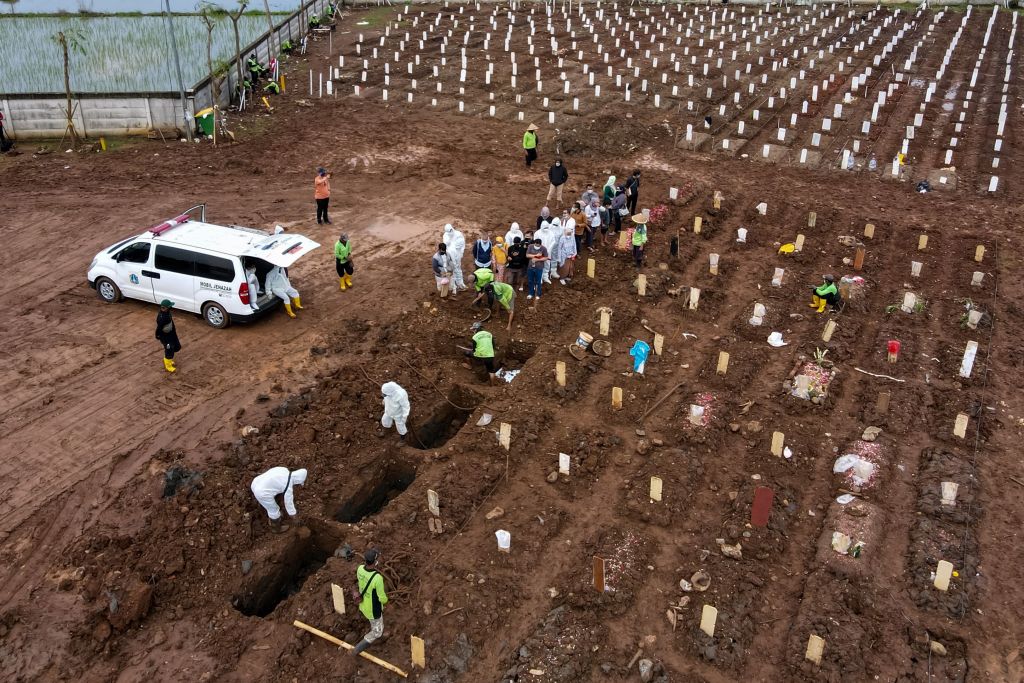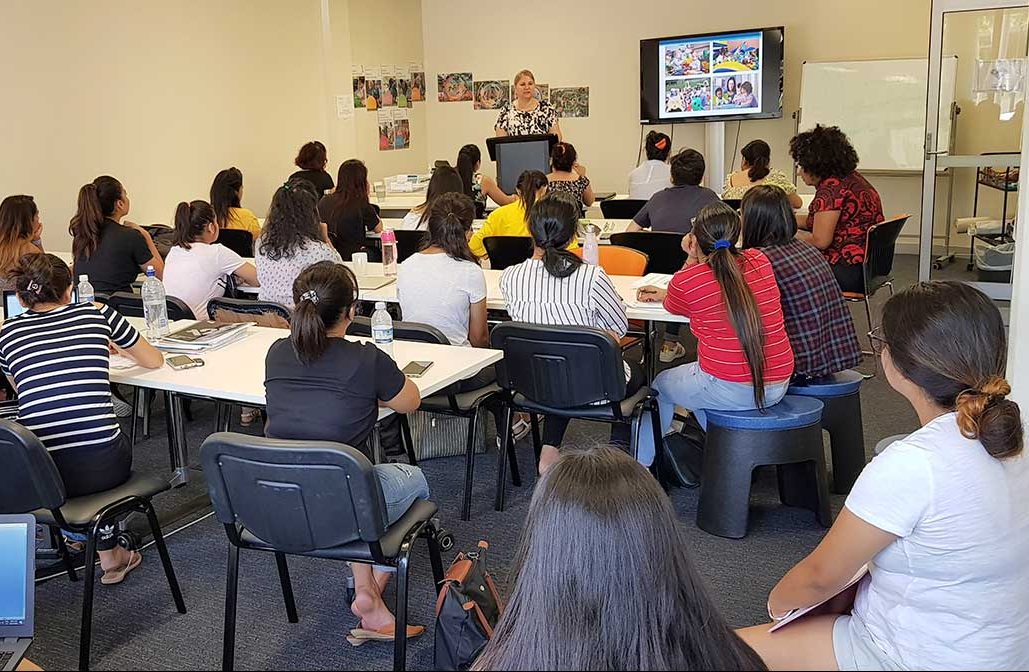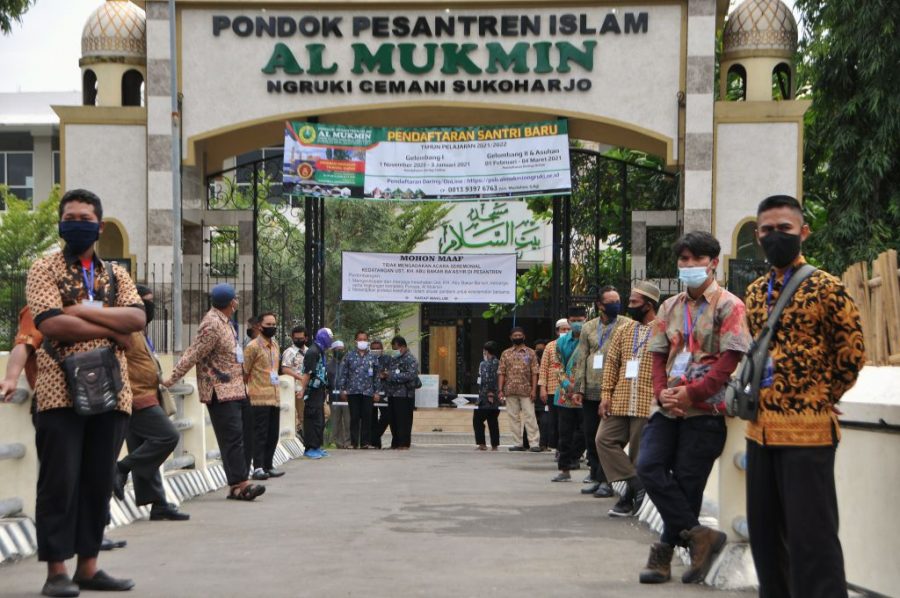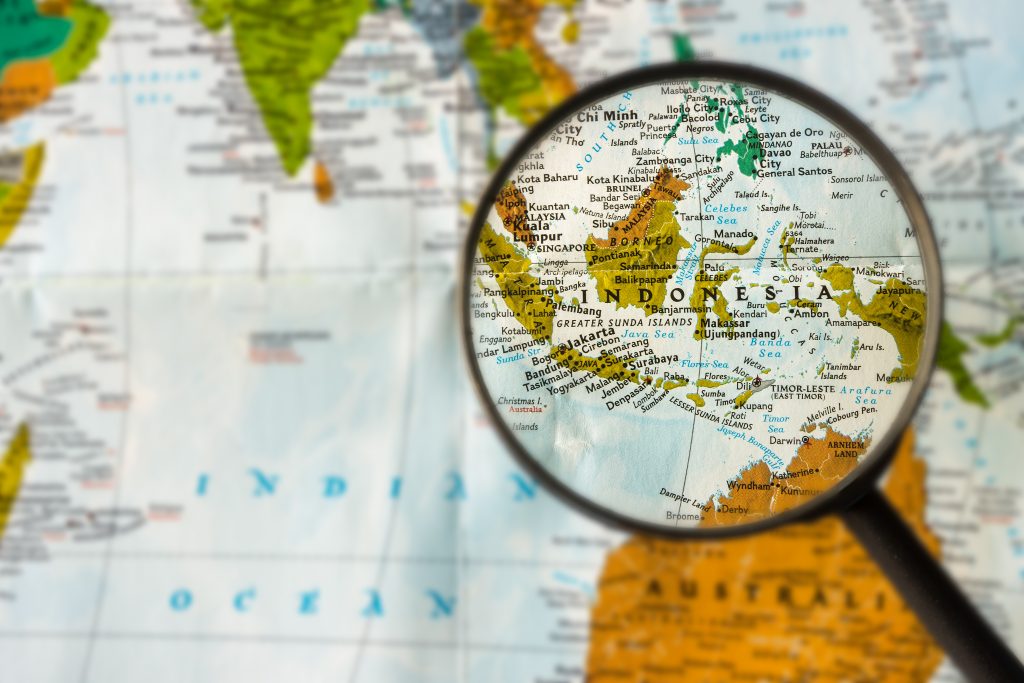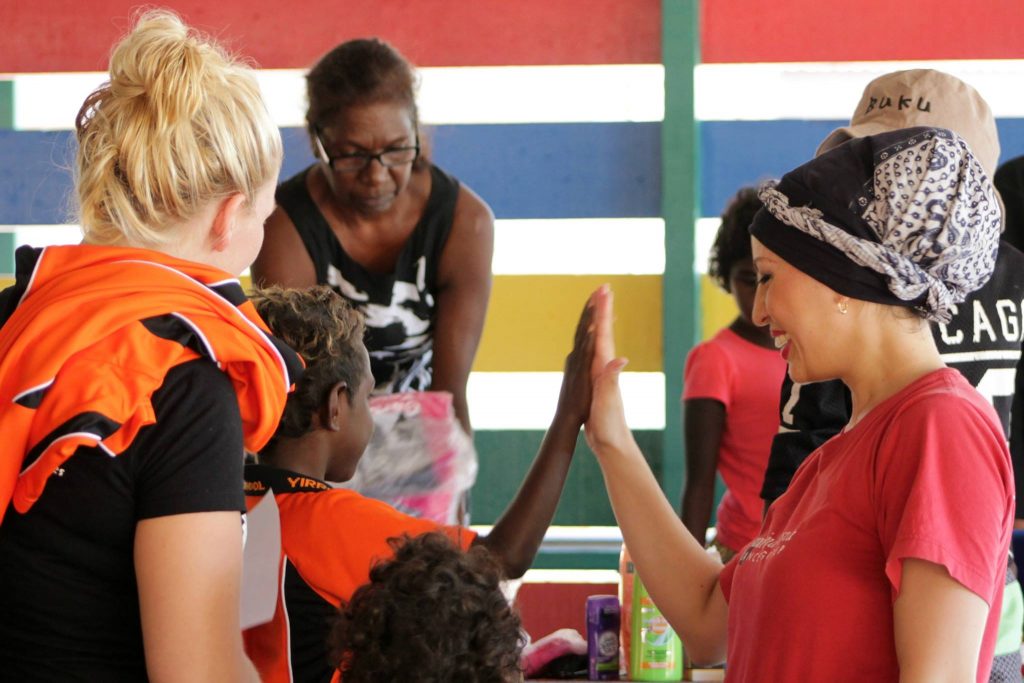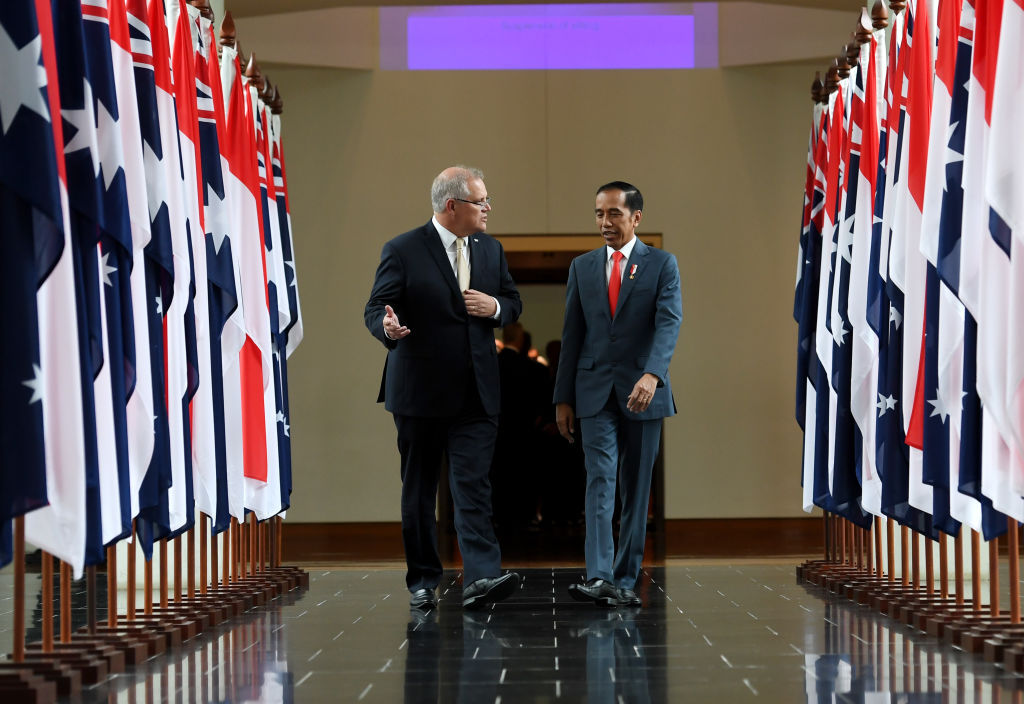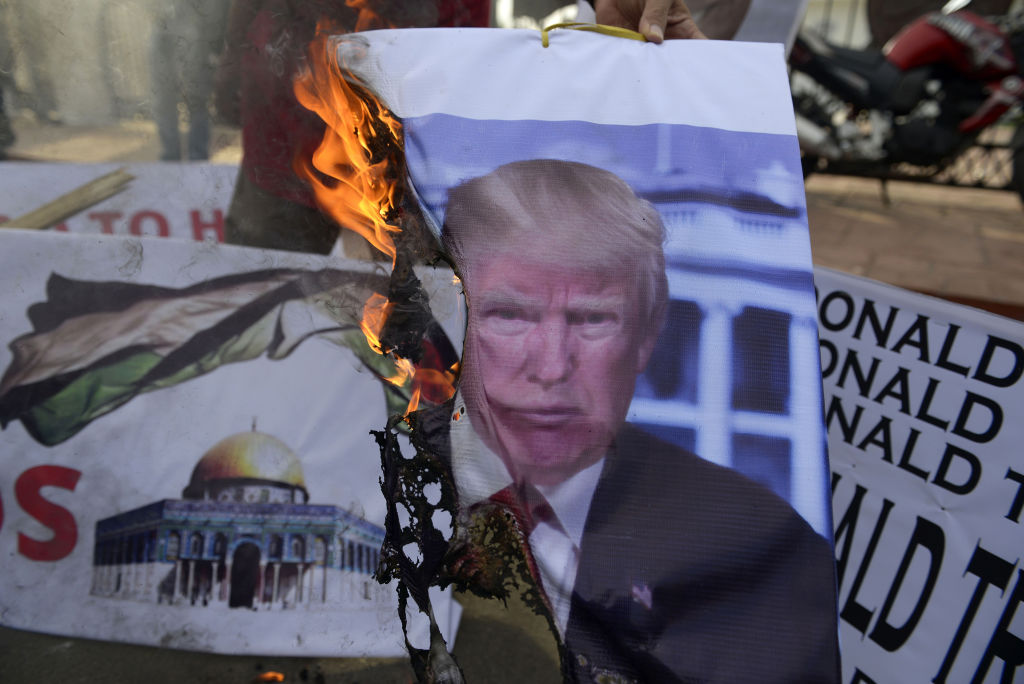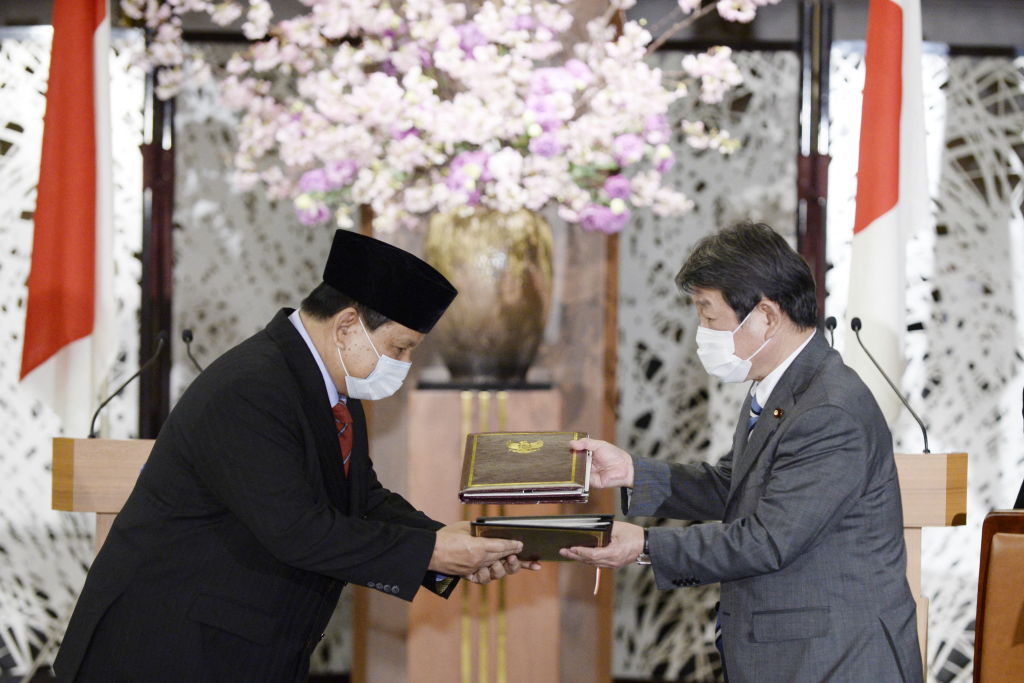
Anyone seeking to isolate the burbling quintessence of Indonesian foreign policy need look no further than at what took place on 2 April in Fujian, China.
The episode in question was a visit by Indonesian Foreign Minister Retno Marsudi, together with Trade Minister Muhammad Lutfi and State-Owned Enterprises Minister Erick Thohir, to Nanping for talks with Chinese Foreign Minister Wang Yi. It was quintessential because it followed so swiftly on the heels of a visit by Retno and Defence Minister Prabowo Subianto to Tokyo for a 2+2 meeting with their Japanese counterparts.
The earlier talks appear to have been the more substantial. Besides reiterations of shared commitments to the bilateral commercial and developmental partnership, they resulted in an agreement on the transfer of Japanese defence materiel and technology, which Prabowo and his counterpart Nobuo Kishi signed during the event and after holding their first-ever face-to-face meeting on 28 March.
A key element of the defence ministers’ initial bilateral discussion was the importance both attached to the ‘freedom of overflight and navigation’ (impliedly in relation to the South China Sea) and to the rule of international law in resolving disputes. The latter point was also a feature of the 2+2 talks, along with such issues as the situation in Myanmar.
The defence agreement, however, was by far the most important ‘deliverable’. While its specifics are still sketchy, the official releases by the respective ministries point to a tangible increase in the level of defence and security cooperation between Tokyo and Jakarta, including formalities like more senior-level visits and dialogues, education and training, bilateral and multilateral exercises, and commitments to explore ‘defence equipment and technology cooperation’ (read: ‘exports’). It represents the latest of a handful of such accords permitting Japanese defence exports that Tokyo has inked with ASEAN partners and just the 10th such agreement that Japan has signed with other nations. As Prabowo gushed at the time, ‘I think this is an historical first in bilateral relations.’
Just how significant the agreement turns out to be will obviously depend on how well both parties—especially Indonesia—turn commitments into deeds. Indonesia’s flawed history of defence procurement offers reasons for scepticism as to how well Jakarta will take advantage of what Tokyo can offer.
But to the extent Prabowo is ready and able to drive Indonesia’s military modernisation with a singular focus on growing national security imperatives, he stands to boost the country’s defence capabilities by enhancing links with Japan. China’s misbehaviour in Indonesia’s exclusive economic zone off its Natuna Islands has aroused Jakarta’s anxieties enough to spark its interest in strengthening its naval posture in the region, and Japan’s maritime domain awareness technologies, including advanced radars and surveillance equipment, would help do just that. So too would several modern frigates, which appear to be on Prabowo’s shopping list.
For Japan, selling defence materiel and technology to Indonesia will bring more than just commercial and domestic employment benefits. Its goal (and Australia’s) of a ‘free and open Indo-Pacific region’ is more likely to be realised if its partners in Southeast Asia have the capacity to withstand Chinese coercion in the international waterways that several, including Indonesia, border. As the region’s largest and prospectively most powerful state, Indonesia is a critical part of this dynamic.
For Indonesia, having Japan as a major defence partner offers advantages that go beyond the assets themselves. Jakarta’s official commentary on the 2+2 meeting referred to the need to develop Indonesia’s ‘national defence industry’ by building a wider network of international cooperation with friendly countries such as Japan. Japan consistently rates favourably among Indonesians as a trustworthy and non-threatening partner, and any deal with Tokyo is likely to be less controversial in some Indonesian quarters than one with the Pentagon, irrespective of who occupies the White House. It would not arouse any of the concerns that past punitive US congressional actions against Indonesia and some individuals, including Prabowo himself, have often flared in Indonesia’s military and political circles. Moreover, in other fields such as infrastructure development and commercial investment, Japan has already proven to be arguably Indonesia’s most reliable partner.
That said, Retno’s subsequent trip to Fujian displayed Indonesia’s ‘free and active’ foreign policy doctrine in full burble. Ostensibly, the visit was aimed at securing China’s support for Indonesia’s—or rather, ASEAN’s—efforts to address the crisis in Myanmar, which officially it did. Whether anything tangible comes of such diplomacy remains to be seen, especially given that the junta hardly seems inclined to conform with what Beijing claims was an agreement to ‘encourage all parties in Myanmar to seek political solutions within the ASEAN framework in the ASEAN way and avoid interference in Myanmar’s internal affairs’. Still, Retno seems to have come away satisfied that Beijing backs her initiative ‘to convene a special meeting of ASEAN leaders’, from which hopefully more will come than platitudes.
Of more substance, presumably, were the elements of the talks focused on economic cooperation and other bilateral issues, to which Beijing’s press release devotes much of its attention. Such matters were doubtless central to the objectives of President Joko Widodo for the meeting, especially in regard to projects like the controversial Jakarta–Bandung rail link, the countries’ Covid-19 vaccine collaboration and trade.
As for the Natunas issue, Retno would only reiterate her ASEAN-centred ‘cooperation’ formula, insisting that Indonesia would ‘advance cooperation because we [ASEAN] are certain that confrontation will not bring benefits for anyone’. China’s media release specified that the two nations ‘should advance cooperation in areas such as navigation security … and fisheries to deliver win–win results, and create bright spots for maritime cooperation’. Presumably, Beijing’s intention is to shine those spots especially brightly off its coastguard vessels near the Natunas.
Whatever the actual outcomes of Retno’s excursion to China might be, the optics of it were arguably the most significant aspect. Her visit’s temporal proximity to the Tokyo talks signalled that Widodo’s Indonesia has no intention of deviating one iota from its ‘free and active’ doctrine, which precludes alignment with anybody. The audience for that signal was as much domestic as international, directed at those for whom the doctrine remains a sacrosanct expression of Indonesia’s post-colonial identity. Japan, however, which has already experienced the Widodo administration’s questionable dealings with it vis-à-vis China on infrastructure projects, could be excused for wondering about how adroit Retno’s practice of the doctrine was and how reliable a strategic partner Indonesia can be.
The Tokyo meeting and the agreement it materialised may yet prove to be important steps in Indonesia’s journey towards becoming a power capable of deterring China’s more egregious challenges to its sovereignty, which seem more likely to grow than recede, no matter how much Jakarta understandably wishes otherwise. But it will take much more than any burgeoning defence relationship with Japan and other partners to convert Indonesia’s defence forces into such a deterrent. Inter alia, it will also need a clear-eyed re-assessment of whether a foreign policy premised on rigid non-alignment and aspirations for ‘cooperation’ irrespective of the actions of other parties remains as fit for purpose in the years ahead as it might once have been.
